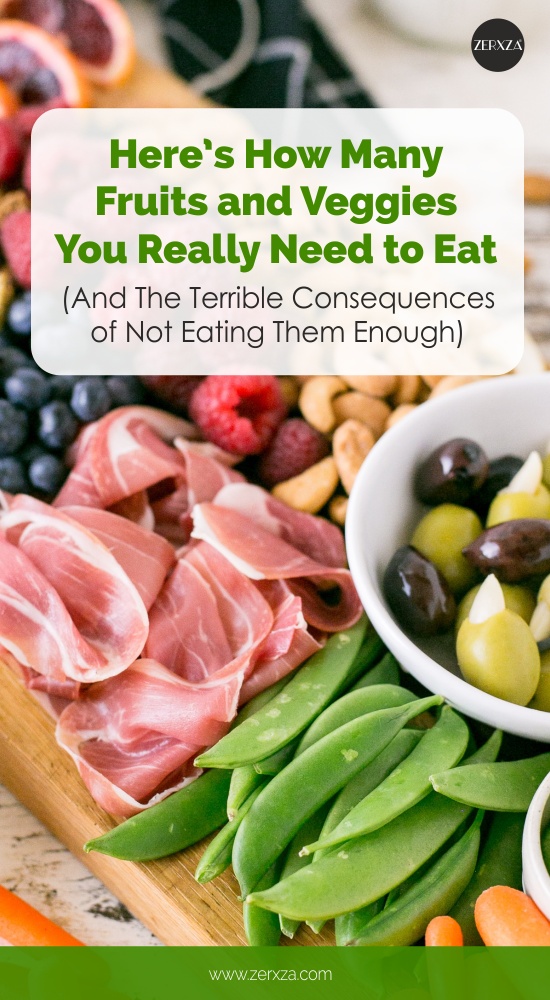If there’s one golden rule of healthy eating that most of us tend to ignore, it’s the habit of eating fruits and vegetables.
However, lack of this habit may result in serious health consequences as a new study links the lack of eating enough fruits and vegetables with millions of cardiovascular deaths.
According to the study, 1 in 7 cardiovascular deaths could be related to the lack of eating enough fruit and 1 in 12 cardiovascular deaths could be related to the lack of including vegetables in your diet.
The study which took into account data from 113 countries (thus covering about 82 percent of the whole world’s population) concluded that about 1.3 million strokes are related to low fruit intake worldwide. In the United States, about 82 000 cardiovascular deaths could be related to low vegetable intake.
Are fruits and vegetables the key to a long life?
The newest study that links millions of strokes to the habit of steering away from apples and reaching towards sugary treats is not the first to confirm how badly we can harm our bodies by avoiding fruits and vegetables. This dangerous habit can be even compared to heavy smoking or drinking when it comes to average life expectancy. By avoiding fruits and vegetables, you might be taking years off your life.
This staggering thought is especially proven by the people who live in the so-called Blue regions and tend to have the longest life expectancy on the whole planet. Why is that so? Largely, due to their diet.
The people who live around the Blue Zones (as described in The Blue Zones Solution) – including Costa Rica and Sardinia – follow either a Mediterranean diet or a diet that’s extremely rich in fresh fruits and vegetables. Processed food and heavy steaks don’t belong in their life. Instead, they opt for a balanced diet that includes plenty of whole grains, legumes, nuts, and other plant-based foods.
As the new study explained: “Fruits and vegetables are good sources of fiber, potassium, magnesium, antioxidants, and phenolics, which have been shown to reduce blood pressure and cholesterol. Fresh fruits and vegetables also improve the health and diversity of good bacteria in the digestive tract. People who eat more of these foods also are less likely to be overweight or obese, lowering their risk of cardiovascular disease.”
Other researchers have come to the same conclusion over and over again. Plants contain many complex nutrients, but the main key to their beneficial qualities lies in the antioxidant content. Antioxidants can prevent DNA damage which, in turn, helps to keep away tens and tens of diseases.
By including plenty of plant-based foods in your diet and decreasing the amount of fatty high-cholesterol foods, you may extend your life by years.
How many fruits and vegetables should you eat daily?
While all of this might sound like it’s time to stock up on all kinds of fruits and veggies and ditch the good old steak, there’s still a balance that should be considered. Even too much of healthy food could harm you.
Another study from a few years ago found that the best health benefits are gained from eating 10 portions of fruits and vegetables daily.
To put that in numbers, it’s about 800 grams or 28 ounces.
According to the researchers, almost 8 million premature deaths could be prevented if everyone would eat that amount of fruits and vegetables!
While the researchers believe that eating even a bit fewer fruits and vegetables every day can bring some beneficial effects, the best results come from 10 portions. That golden point was related to a 33 percent smaller risk of stroke, 28 percent lower risk of cardiovascular disease and 31 percent smaller chance of premature death.
How to include so many fruits and vegetables in your daily diet?
If you’re not naturally cuckoo for apples or broccoli, it might seem a challenge to eat 800 grams of fruits and veggies every single day. However, with some planning, preparing, and determination, it’s actually not so tough at all, especially once you get used to it.
To get you started, here are a few tips to make the veggie-love come more easily:
- Don’t cram all the portions in one meal. Divide the daily portion amount between all meals – 3-4 servings during both lunch and dinner and 1-2 servings during breakfast and snack time.
- Do your whole week’s grocery shopping during the weekend when you have more time (or order groceries via Amazon Fresh). Plan out your entire week’s fruits and vegetables and shop according to that plan.
- Chop and prepare all the veggies and fruits at the same time and divide them into containers, so you won’t have to hassle with them during the week – you can just take the prepared veggies and be done with it!
- To reduce sugar consumption, try to eat more veggies and bit fewer fruits.
- Variate the veggies and fruits. Sooner or later, it can get tiresome to eat the same kind of fruit and veggies for every meal. Treat yourself with something more exotic from time to time or just mix and match with your veggies.
- If you’re not the biggest fan of veggies, try “hiding” them in your food. For example, make a pasta sauce with a bit of celery or broccoli or add some berries to your morning cereal.
Fruits and vegetables can really save your life, as much as the lack of them can take it away from you. So why not make a small change in your diet and start including more fruits and veggies? They’ll make you feel more energetic, happy and in the end, they’ll help you live longer!

